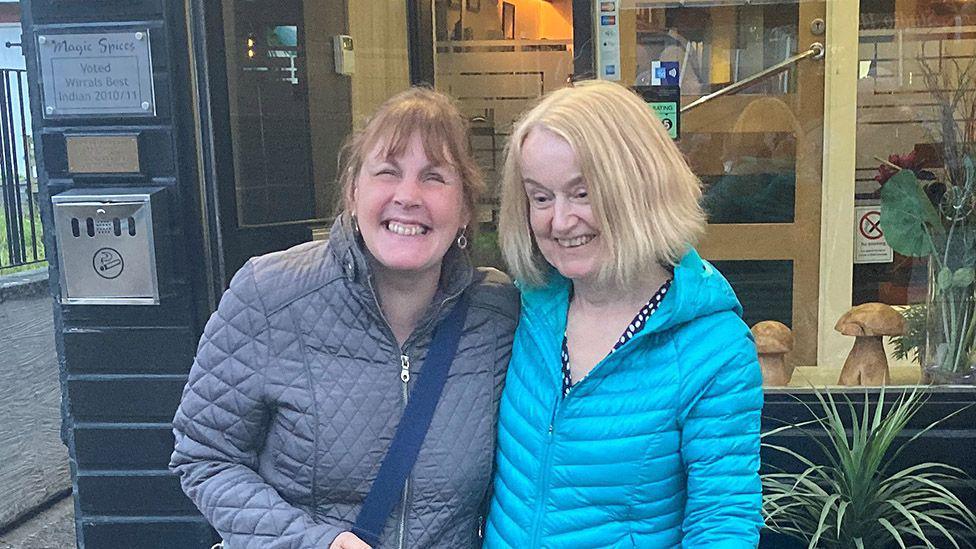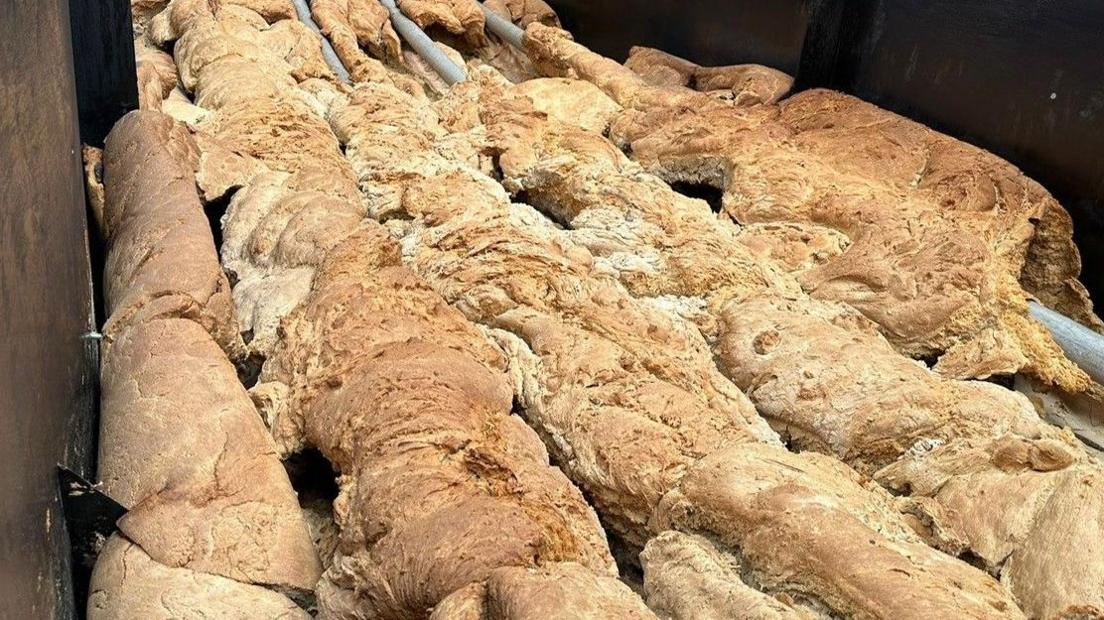Blind people 'should be able to vote in secret'

Gill Wake [right] says it feels a "bit unfair" votes cannot be made in secret
- Published
For the vast majority of people, voting in the general election shouldn't be too much of a challenge.
You turn up to the polling station on 4 July, put your cross against your preferred candidate on the ballot paper and put it in the ballot box.
However, if you happen to be one of the two million people in the UK who has some form of difficulty with their eyesight, then voting could be trickier – and what's more, how you've voted might not be a secret.
Friends Gill Wake and Mandy Redvers-Rowe, who are from Wirral, are both blind and are calling for voting to be made more accessible so they can make an independent vote.
'Depend on them'
Ms Redvers-Rowe, an author based in New Brighton, said she always asked for assistance at the polling station.
"I go into the booth and I use a plastic template with the numbers on," she said, "and against each number there is a point where there's a square you can cross.
"The person [from the polling station] has to read me the list of candidates and I have to be sure I’ve got the right number and I put my cross against [it] so I do depend completely on them reading me the correct list," she said.
She said things had improved since she started voting, but said voting was still a visual medium.
"It's still a very paper-based process," she said, and as such was not accessible enough to blind and partially sighted voters.
"I think it's important that we have the ability to make an independent vote," Ms Redvers-Rowe said.
There are currently two main voting aids used in polling stations; a large-print ballot paper, available for reference, and a tactile voting device, a plastic template that fits over the ballot paper.
This still means people need a sighted person to read the content of the ballot paper and guide them where to put their cross.
Ms Wake, from Hoylake, said it felt "a bit unfair" the vote cannot be done in secret.
She said her arrival at the polling station often caused a stir.
"The clerks get very excited when we walk in, as they all start rummaging round for their accessible template."
Ms Wake suggested technology could be used much better to help blind voters
She said: "They could have an audio description which could loop a blind person in, rather than having someone physically tell you."
The pair both agreed that in 2024, it seemed strange the system was still so heavily reliant on paper.

The Royal National Institute for the Blind (RNIB) worked with the last government on a small scale trial of audio and tactile solutions in 2021, which it said received good feedback from blind and partially sighted people.
However, it said these measures were not made routinely available in every polling station.
The RNIB said in its survey of the 2019 general election, only 13% of blind people said they could vote independently and in secret.
A spokesman said: "Blind and partially sighted people have a right to a secret vote.
"The UK government has a responsibility to make sure there are alternative ways to participate for those who find the current system inaccessible.
"We're urging whoever forms the next government to make voting accessible, once and for all, so that blind and partially sighted people can cast their vote independently and in secret."
The Electoral Commission said everyone should be able to register and vote "without facing barriers".
It said the Elections Act 2022 required returning officers to provide equipment that would support disabled people to vote independently and secretly and the commission added it published new guidance after a wide consultation last year on assistance for disabled voters following the changes.
It said the guidance recommended a range of equipment and support that should be provided as standard at polling stations including tactile voting devices, magnifiers and appropriate lighting to support voters with vision impairment, pencil grips for voters with dexterity issues, and ramps and low-level polling booths for disabled voters.
The commission said the guidance also set out other forms of equipment or support that may be helpful to provide such as audio devices that can help blind and partially sighted people vote independently and in secret.
Wirral Council said every polling stations in Wirral offers large print ballot papers, magnifying glasses in a range of sizes and braille tactile voting devices.
It said trained polling station staff are also on hand to help wherever possible and can even mark ballots, while ensuring voters' privacy was maintained from other members of the public.
"Voters can be assured that polling station staff are legally bound to secrecy and will not tell anyone who you have voted for," it said.
The authority added voters could now also take a companion to the polling booth with them to assist them.
Listen to the best of BBC Radio Merseyside on Sounds and follow BBC Merseyside on Facebook, external, X, external, and Instagram, external. You can also send story ideas to northwest.newsonline@bbc.co.uk, external
Related topics
- Published12 June 2024
